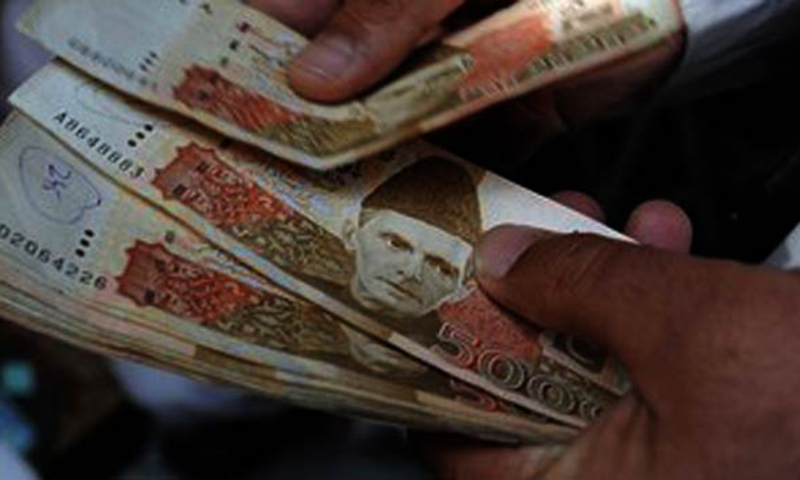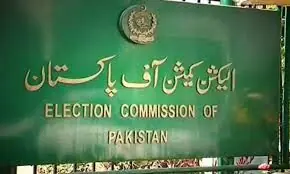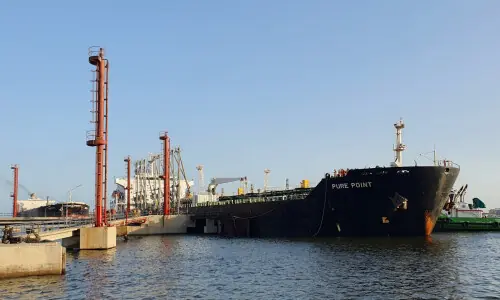ISLAMABAD: Having frozen over Rs1 billion funds of proscribed organisations, the government has decided to deal with all domestic and international flow of funds to suspected terrorist entities in accordance with the Anti-Money Laundering Act (AMLA) to avert adverse international reaction.
A meeting of the Senate Standing Committee on Finance and Revenue was informed by the Ministry of Finance and the State Bank on Thursday that the AMLA 2010 needed to be amended to ward off international isolation and ease operational difficulties being faced by local law-enforcement agencies.
Know more: SBP tracking cases of money laundering, committee told
The meeting was presided over by Senator Nasrin Jalil of the MQM.
Finance Secretary Dr Waqar Masood Khan said the definition of financing of terrorism for the purpose of starting investigation into suspicious transactions reports (STRs) would be amended to include “financing of terrorism including funds collected, provided, use or meant for, or otherwise linked or related to terrorism, terrorist act or organisations and individuals concerned with terrorism”.
An official explained that unless Pakistan met international standards in its laws and efforts to curb terror financing, the international community under the banner of Financial Action Task Force (FATF) on anti-money laundering and counter-terrorism financing (AML/CFT) could declare it a high-risk and non-cooperative country, leading to international sanctions.
The finance secretary said the amendment would ensure domestic and international cooperation among agencies for investigation into terror financing.
The new law proposes due diligence of customers and the requirement of regulatory agencies like the Securities and Exchange Commission of Pakistan and the SBP to maintain record of transactions that was not covered in the previous law.
The finance secretary said all domestic institutions, including investigation and intelligence agencies, and the ministries of law, finance and foreign affairs had been facing operational difficulties in implementing the previous law and law-enforcement agencies had been sitting on STRs for months and years. Therefore, he added, the law was required to be strengthened.
A senior official at the Financial Monitoring Unit said that so far more than Rs1bn had been frozen under resolution 1267 and 1371 of the United Nations against proscribed organisations.
He said that over 5,775 STRs had been issued over the past five years, but only 34 could be taken to logical conclusion, including a recovery of Rs700 million by the National Accountability Bureau in a case relating to the Rs52bn Modaraba scandal.
Senator Haji Adeel of the ANP said the anti-money laundering efforts would not succeed unless the agencies continued to differentiate between good and bad donations and organisations, abettors and perpetrators. He referred to PTI chief Imran Khan’s appeal to the overseas Pakistanis to bypass official channels for sending remittances.
The committee had invited Habib Bank President Nauman Dar and Bank Alfalah Chief Executive Officer Atif Bajwa for independent input.
Mr Dar informed the committee that the FATF could impose fine on Pakistani banks and financial institutions because of ineffective anti-money laundering laws and efforts. He said Pakistan was being counted among countries where AML laws were not strong and hence kept its financial transactions into a sub-category for extra diligence and many foreign banks had declined to do business with Pakistani financial institutions.
He said that being a large bank, HBL had to take its own safeguards as required by the regulators to ensure a look back of transactions over the past five years, but this had an additional cost because of weak existing laws and all banks could not afford this cost. The minimum fine for non-compliance is $5 million in Europe.
Atif Bajwa agreed. He said the banks had to operate in the international market but if international institutions stopped doing business with Pakistani financial institutions, the customers and national economy would suffer a great loss, including clearance of cheques and opening of letters of credit.
He said the law should also be improved to protect the interest of customers because execution or investigation by the agencies led to unfair treatment with innocent customers. He said the Pakistan Banking Association had shared its concern with the central bank.
The committee decided to constitute a sub-committee for holding consultations with lawyers, bankers and chambers of commerce and industry and other stakeholders and invite legal experts for independent briefing before making its recommendations on the AML (Amendment) Act 2014.
Published in Dawn, January 16th, 2015
On a mobile phone? Get the Dawn Mobile App: Apple Store | Google Play
































